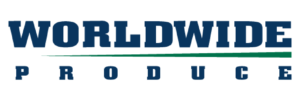Truck drivers are being more selective about which shippers and receivers they will service now that the electronic logging devices mandate is in effect.
Columbus, Ohio-based Zipline Logistics recently surveyed more than 150 trucking companies about how their business has changed following the ELD mandate, and 54% said they will no longer wait as long as they once did for loading or unloading, and 80% said there are shippers or receivers they refuse to go to because wait times are too long.
“Locations that are known to have little to no regard for a driver’s (hours of service) are no longer serviceable,” one respondent commented, according to the report.
One company commented that it monitors load and unload times so it can avoid going to places with unreasonably long wait times.
“Anyone that can’t unload or load on time, why go to them and waste hours?” one respondent wrote. “Time is money now.”
More than 90% of the companies with which Zipline works service grocery and retail facilities, and some of them named major retailers and wholesalers among the worst offenders.
“A select population of drivers are now unwilling to go into locations such as Kroger, C&S Wholesale and (United Natural Foods) because of debilitating wait times,” Zipline said in its report. “If this issue is to be solved, shippers and retailers will need to improve their speed of operations and better cater to the needs of truckers.”
Walmart, Supervalu, Dollar General, Aldi, Wakefern Corp., Safeway and Meijer were also mentioned in comments by survey respondents.
Other effects
Trucking companies were split 60-40 on whether the mandate improved safety, according to Zipline’s report.
Some reported that it forced drivers to stop, rest and follow hours-of-service requirements, but other companies reported drivers were speeding more, driving in inclement weather, and driving while tired to maximize their hours.
Companies pointed to the driver shortage, rather than the mandate itself, as the main cause of rising rates. However, there were a few comments about drivers leaving the industry so as not to have to deal with the new regulations. Still, most companies pegged the mandate as a contributor to higher rates rather than the main cause of them.



















